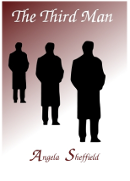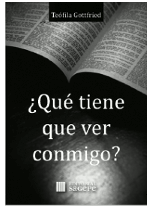Truth really can be stranger than fiction.
First Page - Now launched! All the stories are true, or based on real events. Unlimited reading for $4.99 / month. No downloads. Read on your phone, tablet or computer.
La verdad puede ser más extraña que la ficción.
First Page - ¡Ya está en marcha! Todas las historias son verídicas, o están basadas en hechos reales. Lectura ilimitada por $4.99 / mes. No hay que descargar nada. Lea en su teléfono, tableta u ordenador.
Manna Minutes Podcast: Eye-opening Bible study in less than five minutes! Access all episodes here.
Manna Minutes en español:
Estudio bíblico que nos hace abrir los ojos en menos de cinco minutos! Acceda a todos los episodios aquí.
Manna Minutes Podcast auf Deutsch:
Augenöffnendes Bibelstudium in weniger als fünf Minuten! Alle Episoden finden Sie hier.
Was There A Curse On Helen's Romantic Life?
The Third Man by Angela Sheffield is based on a true story. Read chapter one now!
View Content By Specific Category
¿Qué tiene que ver conmigo? por Teófila Gottfried
Lo que leemos en la Biblia tiene que ver con todos los seres humanos, sean cristianos o judíos, ateos o agnósticos, budistas, musulmanes o adherentes a alguna de las filosofías o nuevas religiones que surgen en el mundo. ¿Por qué? Ver mayor información sobre este interesante libro.
Scripture of The Day - St. John 14:6
Jesus saith unto him, I am the way, the truth, and the life: no man cometh unto the Father, but by me.
Escritura del día - San Juan 14,6
Jesús le dijo: Yo soy el camino, y la verdad, y la vida; nadie viene al Padre, sino por mí.
Bibelstelle des Tages - Johannes 14,6
Jesus spricht zu ihm: Ich bin der Weg und die Wahrheit und das Leben; niemand kommt zum Vater, denn durch mich!
Little Children In 2 Kings 2:23-25: Incorrect Translation?

We read, "And he went up from thence unto Bethel. And as he was going up by the way, there came forth little children out of the city, and mocked him, and said unto him, Go up, thou bald head. Go up, thou bald head. And he turned back, and looked on them, and cursed them in the name of the Lord. And there came forth two she bears out of the wood, and tore forty and two children of them." (2 Kings 2:23-24).
But Wasn't The Original Hebrew Word "Naar" Mistranslated?
Many teach that while the original Hebrew word "naar", used in this passage, means young, it spans many years in age. For example, these teachers remind that it can reference infancy all the way to late-forties. They cite scriptures such as Genesis 41:12, 46, in which "naar" is used in reference to Joseph who was 30 years old. They cite Exodus 33:11, which contains the Hebrew word "naar" in reference to Joshua who could have been as old as 50. The first thing to keep in mind is that in these two scriptures speaking of Joseph and Joshua, translators clearly call them men...young men, but men, nevertheless. Translators make it clear to readers that Joseph and Joshua are adults. They are not referred to as children.
Second Kings 2:23-24, however, does not use the word "men". That is why applying their reasoning to the 2 Kings 2:23-24 passage does not wash. Now then, let's look at the fact that the same Hebrew word "naar", used throughout Old Testament Scripture, is translated to reflect the approximate age of the people to which it refers. That is why "naar" is seen translated as "young", "youth", "babe", "child", "children", "lad", "boys" and even "servant." Why do these same teachers not question these translations in those passages? They are taken at face value. For example, the translators translated "naar" as "babe" in Exodus 2:6, which speaks of the toddler Moses. We read, "And when she had opened it, she saw the child, and behold, the babe wept..." This is one of many Scriptures that prove that the translators knew which word to use to accurately represent the approximate age of the person in question. They not only said "child", but also "babe" to let us know Moses was a very young child.
The same can be said of Scriptures such as Lamentations 5:13, which reads, "They took the young men to grind, and the children fell under the wood." Here we see translators distinguishing young men--adults--from children. This is proof that they knew when to say "child", or "children", or "babe", or "young men." They realized that the huge difference between a toddler and a young adult must be captured in translation. Let's think about it. They used "babe" in reference to Moses. "Babe" removes any doubt as to which end of the age spectrum is being referenced. The very young ages are represented with "babe". Do we not have another word that brings to mind very young ages? Yes. That word is "little". The 2 Kings 2:23-24 passage doesn't just say "children", it specifies that the children are little. There has to be a reason for this.
What's interesting is that we find the very same Hebrew word (naar) used in conjunction with "little" in other Old Testament Scripture. Now then, those who teach that "naar" does not mean little children in the 2 Kings passage, have no problem with believing it DOES mean "little children" in other passages...including other passages in 2 Kings. Why is that? Now, we read, "Then went he down and dipped himself several times in Jordan, according to the saying of the man of God. And his flesh came again like unto the flesh of a little child..." (2 Kings 5:14).
If "naar" means "little child" in the 2 Kings 5:14 passage, why does it not mean "little children" in the 2 Kings 2:23-24 passage? And we read, "That Hadad fled, he and certain Edomites of his father's servants with him to go into Egypt; Hadad being yet a little child." (1 Kings 11:17). Do we question "little child" in the 1 Kings 11:17 passage? No. Why question "little children" in the 2 Kings 2:23-24 passage? The passages of 1 Kings 3:7 and 11:17 also show the "little child" translation of the Hebrew word "naar", and there is no argument against accepting that little children are being referenced. There are numerous passages in which "naar" is translated as "child", and there is no doubt that the "child" in question is young. For example, Proverbs 22:15 uses this Hebrew word to refer to driving the foolishness bound in the heart of a child through the rod of correction. Do we imagine a parent spanking a twenty-year-old son or daughter? Of course not.
The fact of the matter is that there is no problem with the other "little children" passages using the same Hebrew word, because they do not involve punishment. The "problem" with the passage we're examining is that bears maul "little children". We believe this is the great resistance to even entertaining the thought that those children could have been very young teenagers. Perhaps younger. Of course it's frightening to think of bears ripping into children, because we've all been naughty at some point when we were children. And truth be told, we don't like severe punishment from God. The Lord's harsh punishment is horrible. This is why some have prayed, "Punish me not, Lord, according to my sins." After all we read in the Bible, "He hath not dealt with us after our sins; nor rewarded us according to our iniquities." (Psalm 103:10).
In conclusion, no one can say for sure that the little children in 2 Kings 2:23-24 were very little children. By the same token, there is no biblical support for saying that they were actually young men. Let us remember that while we might dismiss the evil that children do as "child stuff", the Lord lets us know He does not dismiss it. He sees the behavior for what it truly is. We read, "Even a child is known by his doings, whether his work be pure, and whether it be right." (Proverbs 20:11). We know the Proverbs passage refers to a literal child, because it says "even". Of course adults are known by their doings. But we read, "EVEN a child is known by his doings..." "Even" means including.
Only God truly saw the "doings" and the "work" of the little children who were attacked by bears. Some say they might not have died. However, the Bible says they were torn. Therefore, it is highly probable that they died from blood loss and massive infection in a time period when medical science was not advanced. We'd all do well to remember that once we reach an age at which we know right from wrong, "it is a fearful thing to fall into the hands of the living God." (Hebrews 10:31).
 Based on true events, The Third Man by Angela Sheffield, brings the Bible up close and personal as the characters face real issues of life: Betrayal, deceit, romance, bitterness, anger against God, hopelessness, will power, perplexity, triumph, unforgiveness, mental illness, and the "Alcohol made me do it" excuse. Read chapter one FREE now.
Based on true events, The Third Man by Angela Sheffield, brings the Bible up close and personal as the characters face real issues of life: Betrayal, deceit, romance, bitterness, anger against God, hopelessness, will power, perplexity, triumph, unforgiveness, mental illness, and the "Alcohol made me do it" excuse. Read chapter one FREE now.
Copyright notice: This website and its content is copyright of © Heavenly Manna (HeavenlyManna.net) 2002-2025.
Comments/Comentarios:
Send Comments or a Private Message about One of Our Services / Envíe Comentarios o un Mensaje Privado acerca de nuestros servicios
Once comments reach 10, they close. IF YOU USE PROFANITY, WE WILL REJECT YOUR COMMENT AUTOMATICALLY.
We're a small team, please be patient as we review comments.
©2003 - 2013 Heavenly Manna Ministries
Images: courtesy of Free Digital Photos, openstockphotography.org, FreeFoto.com, Wikimedia Commons. Multiple crosses image - Wikimedia Commons - C.G.P Grey - Animation by Heavenly Manna










